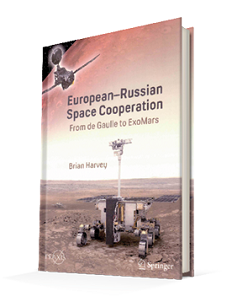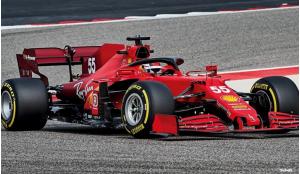As seasoned space author Brian Harvey points out in the introduction to his new book, in the shadow of Russian-American competition, cooperation between Russia and the third space power, Europe, is often overlooked. According to the author, at least part of the problem in terms of publicity is due to language, because “France was the principal interlocutor” and the cooperation “did not receive the attention it deserved in English-language literature”.
This volume on European-Russian space cooperation – subtitled “From de Gaulle to ExoMars” – helps to put the record straight. It is, in essence, a historical analysis that begins with a 1966 visit to the Soviet Union by French President Charles de Gaulle and ends with “the two-part joint ExoMars project to send orbiters, landers and a rover to the planet Mars”.
The story is presented in six chapters with refreshingly transparent titles: Early days; Scientific cooperation; Human spaceflight; Industrial cooperation; ExoMars; and Conclusions. It looks at how the international relationships evolved; the factors (scientific, industrial and political) that drove their development; which countries participated most and least; and which benefitted. Additional matter includes appendices, a bibliography and an index. The book is extremely well illustrated in colour and the pictures look good on the white, glossy paper.
It is clear from the first chapter that, despite the nascent and sometimes unproven technology, things were a good deal less bureaucratic in the early days. As the author relates, the decision to establish a French space programme was “made at a remarkably short meeting of the government [in 1961], which de Gaulle concluded by saying ‘just do it!’ before walking out”. As a result, the French space agency CNES was established by the end of that year, whereas, as the author points out with some chagrin, “Britain did not set up a space agency until 2010”.
Mind you, the UK had Bernard Lovell (the impetus behind the Jodrell Bank radio telescope) who, in 1961, visited satellite tracking facilities in Russia that no-one else from the West would see for another 20 years. While there, Lovell secured a cooperation agreement between Jodrell and the Crimean Astrophysical Observatory. Unfortunately, the British-Russian “romance” ended in February 1966 when Luna 9’s first photos of the Moon were received by Jodrell Bank and published in the following day’s Daily Express “before the USSR had the chance to do so”. This book is full of similar insights and intelligent analysis. Anyone interested in space history and international space cooperation is sure to find it a fascinating read.











